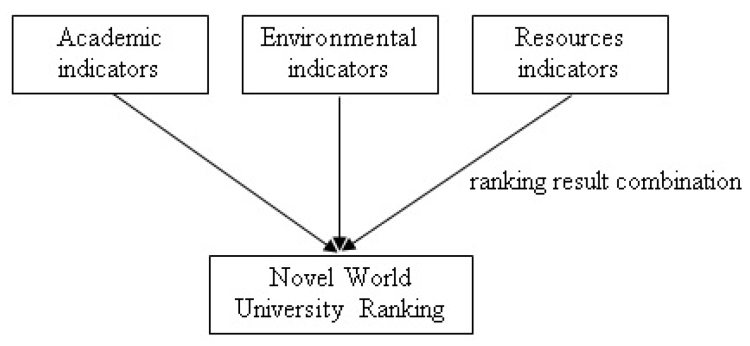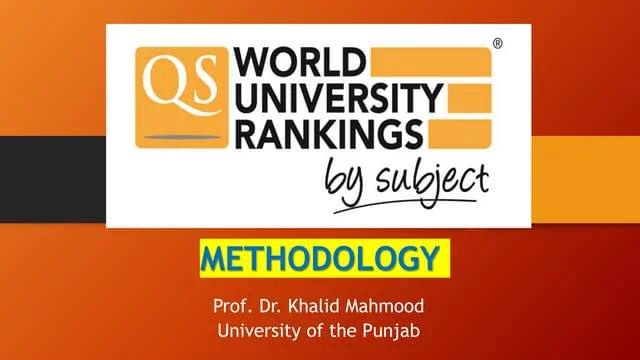Exploring QS International Trade Rankings: A Comprehensive Evaluation of Universities
In the increasingly interconnected global economy, the study of international trade is crucial for understanding economic dynamics, fostering international relations, and shaping policy decisions. QS International Trade Rankings, developed by QS (Quacquarelli Symonds), offer a specialized evaluation of universities based on their contributions to this field. Unlike traditional rankings that focus broadly on academic and research excellence, QS International Trade Rankings provide a nuanced assessment that considers specific aspects relevant to international trade education, research, and practical application. This blog aims to delve deeper into QS International Trade Rankings, exploring its methodology, significance, challenges, impact, and the role of universities in advancing knowledge and expertise in international trade.
Understanding QS International Trade Rankings Methodology

The methodology of QS International Trade Rankings involves a multifaceted approach to assess universities' performance in international trade:
-
Research Output and Impact: QS evaluates universities based on the quantity, quality, and impact of research outputs related to international trade. This includes publications in high-impact journals, citations, and the relevance of research to contemporary trade issues such as global supply chains, trade agreements, and economic policies.
-
Academic Reputation: The academic reputation of universities in international trade is determined through surveys of academics, researchers, and professionals in the field. This criterion reflects the perceived excellence and influence of a university's research, teaching quality, and contributions to advancing knowledge in international trade.
-
Industry Partnerships and Collaboration: QS assesses universities based on their collaborations and partnerships with businesses, government agencies, international organizations, and non-profits involved in international trade. Strong partnerships indicate practical applications of research, opportunities for students, and contributions to industry practices and policies.
-
Alumni Success and Employability: The career outcomes of alumni in international trade-related fields are a crucial metric. QS considers employment rates, career progression, leadership roles, and contributions to the field through research, policymaking, and industry innovation.
-
International Diversity and Student Engagement: The diversity of students and faculty engaged in international trade studies is also taken into account. Universities with a diverse student body and faculty contribute to broader perspectives, cross-cultural understanding, and global collaboration in international trade education and research.
Significance and Impact of QS International Trade Rankings
The QS International Trade Rankings serve several significant purposes within the higher education and global economic landscape:
-
Informing Educational Choices: Prospective students use these rankings to identify universities with strong programs, research opportunities, and resources in international trade. This helps students make informed decisions about their educational and career aspirations in this specialized field.
-
Benchmarking and Institutional Improvement: Universities use the rankings to benchmark their performance against global peers and identify areas for enhancement in research capabilities, teaching methods, industry partnerships, and alumni engagement strategies.
-
Enhancing Global Reputation and Collaboration: High rankings in international trade enhance a university's global reputation and attractiveness to international students, faculty, researchers, and industry partners. This fosters collaboration, exchange programs, joint research initiatives, and international partnerships that enrich the academic and research environment.
-
Informing Policy and Practice: Policymakers, industry leaders, and stakeholders use the rankings to understand trends in international trade education, research, and policy development. The insights derived from these rankings inform policy decisions, strategies for economic development, and efforts to address global trade challenges and opportunities
-

.
Criticism and Challenges
Despite their benefits, QS International Trade Rankings face criticisms and challenges that warrant consideration:
-
Data Availability and Accuracy: Ensuring consistent and reliable data from universities worldwide can be challenging due to variations in reporting practices, data accessibility, and limitations in data transparency. Improving data collection methods and enhancing transparency are essential for the accuracy and reliability of rankings.
-
Methodological Complexity: The complexity of evaluating international trade metrics across diverse educational systems, cultural contexts, and economic environments may impact the standardization and comparability of rankings. Continued refinement of methodology is necessary to address these challenges.
-
Subjectivity in Perception: Academic and industry perceptions of international trade excellence can be subjective and may not fully capture the multidimensional contributions of universities in this field. Incorporating diverse perspectives and feedback from stakeholders can enhance the credibility and relevance of rankings.
Case Studies and Success Stories
Examining case studies of universities that have excelled in QS International Trade Rankings provides valuable insights into effective strategies and best practices. These success stories illustrate how institutions leverage research excellence, industry partnerships, alumni networks, and international collaborations to advance knowledge and practice in international trade.
Future Directions and Evolution
Looking ahead, QS International Trade Rankings are expected to evolve to address emerging trends and challenges in international trade education, research, and practice:
-
Methodological Refinements: QS may refine its methodology to include new indicators such as digital trade, sustainability in trade practices, geopolitical analysis, and the effectiveness of trade policies. This evolution reflects changing global trade dynamics and the evolving demands of the job market.
-
Enhanced Data Transparency and Accessibility: Improving data collection methods and enhancing transparency to ensure the accuracy, reliability, and comparability of rankings across diverse global contexts. Enhanced transparency fosters trust among stakeholders and improves the usability of rankings data.
-
Integration of Diversity, Equity, and Inclusion: Incorporating metrics that assess universities' efforts in promoting diversity, equity, and inclusion in international trade education and research. This includes initiatives to support underrepresented groups, address global trade inequalities, and foster inclusive trade policies and practices.
Conclusion

In conclusion, QS International Trade Rankings provide a valuable framework for evaluating universities' contributions to international trade education, research, and practice. By focusing on research excellence, academic reputation, industry partnerships, alumni success, and international diversity, these rankings offer insights for prospective students, educators, policymakers, and stakeholders in the global trade community. Understanding QS International Trade Rankings is essential for navigating the complex landscape of higher education, making informed decisions, and fostering excellence in international trade studies worldwide. As higher education continues to evolve, QS International Trade Rankings remain a critical tool for promoting transparency, accountability, and innovation in preparing future leaders in international trade.

























